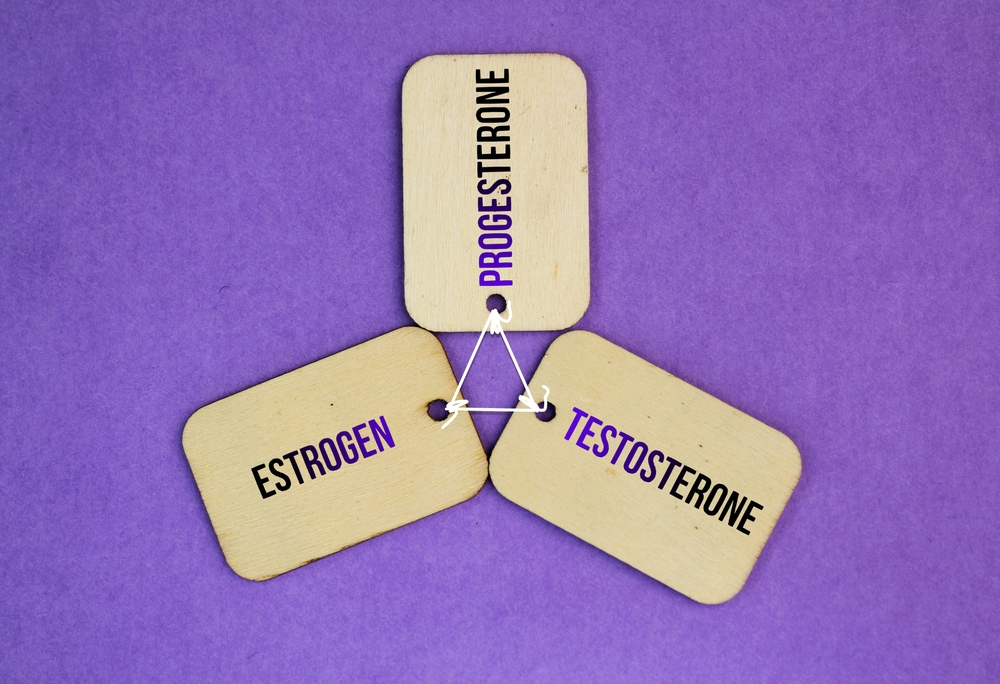TRT and Weight Loss: Can Testosterone Help Shed Excess Fat?
Weight loss is a multifaceted challenge that involves diet, exercise, genetics, and hormonal balance. One hormone that has garnered significant attention in the weight loss community is testosterone. While often associated with male characteristics, testosterone is vital for both men and women. At Apex Hormone Health in Parker, Colorado, we understand the intricacies of testosterone’s role in weight management and how Testosterone Replacement Therapy (TRT) can aid in shedding excess fat. This comprehensive guide delves into the relationship between testosterone and weight loss, exploring the benefits for both men and women.
Understanding Testosterone in Women and Men
Testosterone is a steroid hormone primarily produced in the testes in men and the ovaries in women, with small amounts produced by the adrenal glands. It is crucial for developing male reproductive tissues, muscle mass, bone density, and body hair. In women, testosterone plays a role in bone strength, cognitive health, and libido.
Testosterone in Men
In men, testosterone levels peak during adolescence and early adulthood, then gradually decline with age. This decline can lead to various health issues, including reduced muscle mass, increased body fat, and decreased energy levels. Low testosterone levels can contribute to weight gain and difficulty losing weight, making TRT a potential solution for weight management.
Testosterone in Women
Although women have lower testosterone levels than men, it is still an essential hormone. Testosterone in women contributes to muscle strength, bone density, and overall vitality. A decrease in testosterone, often occurring with age or certain medical conditions, can lead to weight gain, particularly around the abdomen. For women, maintaining balanced testosterone levels can aid in weight management and overall well-being.
The Role of Testosterone in Weight Management
Testosterone influences several physiological processes that affect weight, including metabolism, muscle mass, and fat distribution. Understanding these mechanisms can help us appreciate how TRT can support weight loss efforts.
Metabolism
Testosterone plays a significant role in regulating metabolism. Higher testosterone levels are associated with increased basal metabolic rate (BMR), which is the amount of energy expended while at rest. A higher BMR means the body burns more calories, even when not engaging in physical activity. This can help prevent weight gain and support weight loss.
Muscle Mass
Testosterone is anabolic, meaning it promotes muscle growth. Muscle tissue burns more calories than fat tissue, even at rest. Therefore, increasing muscle mass through higher testosterone levels can enhance calorie burning and support weight loss. Conversely, low testosterone levels can lead to muscle loss and increased body fat, particularly visceral fat, which is linked to various health risks.
Fat Distribution
Testosterone influences how fat is distributed in the body. Higher testosterone levels are associated with less abdominal fat and more lean muscle mass. Abdominal fat, or visceral fat, is particularly harmful as it surrounds internal organs and is linked to metabolic disorders like insulin resistance, type 2 diabetes, and cardiovascular disease. By promoting a healthier fat distribution, testosterone can help mitigate these risks and support overall health.
Testosterone Replacement Therapy (TRT)
TRT involves supplementing the body with testosterone to restore levels to a healthy range. It can be administered through various methods, including injections, gels, patches, and pellets. Testosterone Replacement Therapy aims to alleviate symptoms of low testosterone, such as fatigue, reduced libido, and weight gain, and improve overall quality of life.
TRT for Men
In men, TRT can significantly impact weight loss and body composition. Studies have shown that men undergoing TRT experience reductions in body fat, particularly visceral fat, and increases in lean muscle mass. These changes contribute to improved metabolic health and weight management.
Case Study: TRT and Weight Loss in Men
A study published in the journal Obesity followed obese men with low testosterone levels who underwent TRT for several years. The results were remarkable: participants experienced significant weight loss, reduced waist circumference, and improved body composition. This study highlights the potential of TRT to aid in weight management and improve metabolic health in men.
TRT for Women
TRT is less commonly discussed for women, but it can be equally beneficial. Women experiencing symptoms of low testosterone, such as fatigue, decreased muscle mass, and weight gain, may find relief through TRT. By restoring testosterone levels, women can experience increased energy, improved muscle tone, and enhanced weight management.
Case Study: TRT and Weight Loss in Women
Research on TRT in women is more limited, but anecdotal evidence and smaller studies suggest positive outcomes. One study published in Menopause found that postmenopausal women receiving testosterone therapy experienced reductions in abdominal fat and improvements in lean muscle mass. These findings indicate that TRT can be a valuable tool for weight management in women, particularly those struggling with age-related hormonal changes.
Integrating TRT into a Weight Loss Plan
While TRT can be beneficial for weight loss, it is most effective when combined with a comprehensive weight management plan that includes diet, exercise, and lifestyle changes.
Diet
A balanced diet is crucial for weight loss and overall health. When combined with TRT, a diet rich in lean proteins, healthy fats, and whole grains can support muscle growth and fat loss. Additionally, reducing refined sugars and processed foods can help maintain stable blood sugar levels and prevent weight gain.
Exercise
Regular exercise is essential for weight loss and maintaining muscle mass. Strength training exercises, in particular, can enhance the effects of TRT by promoting muscle growth and increasing metabolic rate. Combining cardiovascular exercises with strength training can provide a well-rounded fitness routine that supports weight loss and overall health.
Lifestyle Changes
Incorporating healthy lifestyle habits can further enhance the benefits of TRT. Prioritizing sleep, managing stress, and avoiding smoking and excessive alcohol consumption are crucial for maintaining hormonal balance and supporting weight loss efforts.
Potential Risks and Considerations
While TRT can offer numerous benefits, it is essential to approach it with caution and under the guidance of a healthcare professional. Potential risks and side effects should be considered before starting TRT.
Side Effects
Common side effects of TRT include acne, sleep apnea, and increased red blood cell count. More severe risks include cardiovascular issues and prostate health concerns in men. Women may experience symptoms such as voice deepening and hair growth. Monitoring by a healthcare provider is essential to mitigate these risks and ensure safe treatment.
Individual Variability
Not everyone will respond to TRT in the same way. Factors such as age, overall health, and underlying medical conditions can influence the effectiveness and safety of TRT. A personalized approach, considering individual needs and medical history, is crucial for achieving optimal results.
Alternative Treatments
TRT is not the only solution for managing low testosterone and weight loss. Lifestyle changes, such as improved diet and increased physical activity, can naturally boost testosterone levels and support weight management. In some cases, addressing underlying medical conditions, such as thyroid disorders or insulin resistance, can improve hormonal balance and facilitate weight loss.
Contact Apex Hormone Health Today!
Testosterone plays a vital role in weight management for both men and women. By regulating metabolism, promoting muscle growth, and influencing fat distribution, testosterone can significantly impact body composition and overall health. TRT offers a promising solution for those struggling with low testosterone levels and weight gain. However, it is essential to approach TRT with caution and under professional guidance to ensure safety and effectiveness.
At Apex Hormone Health in Parker, Colorado, we are dedicated to helping our patients achieve optimal health and well-being. Our personalized approach to hormone therapy, including TRT, is designed to address individual needs and support weight management goals. If you are struggling with weight loss and suspect low testosterone levels may be a factor, consider consulting with our experienced healthcare providers to explore the benefits of TRT.
By combining TRT with a balanced diet, regular exercise, and healthy lifestyle habits, you can take significant steps toward shedding excess fat and improving your overall health. Whether you are a man or a woman, understanding the role of testosterone in weight management can empower you to make informed decisions and achieve your weight loss goals.







